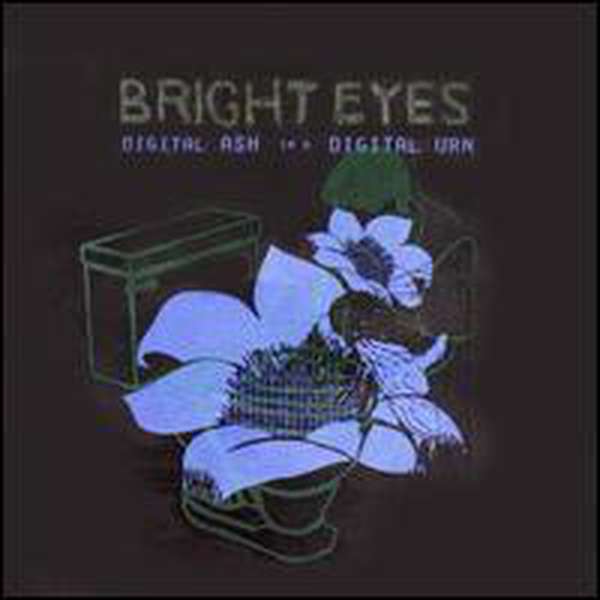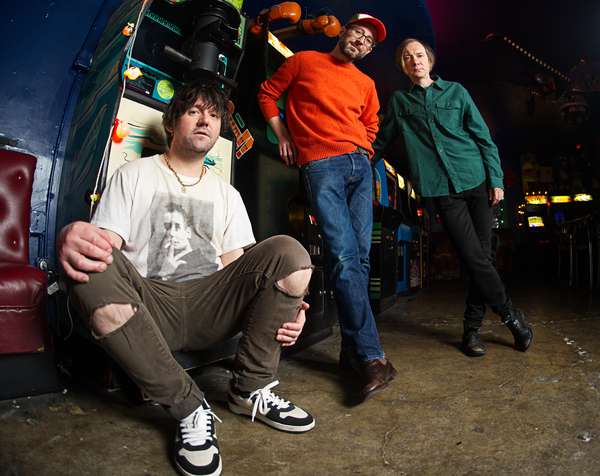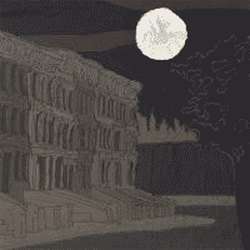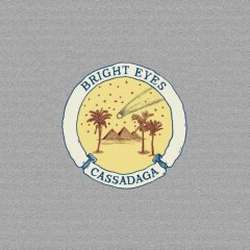Digital Ash in a Digital Urn appears to be out of character for Conor Oberst. He incorporates heavy beats and samples that force his signature acoustic guitar into the closet. The initial shock caused me to put the album away for a month, because I thought it was such an immense departure from his previous albums. I pulled it out again for a second chance, however, and came to the conclusion that the album is very Conor Oberst. The lyric themes haven't changed - he's still as anxious as ever. Strip away all the extraneous layers and there lies a basic Bright Eyes song. He even continues the tradition of introducing a new cast of musicians, which this time around includes Nick Zinner of the Yeah Yeah Yeahs and Jimmy Tamborello of Dntel.
I appreciate that Oberst is trying to branch out to different sounds and I believe artists should not be constrained by genres and labels. As he ventures into a sea of electronic noise in his quaint homemade boat, however, he sounds like an amateur, because he is when it comes to this new genre. It's easy to forget that simple fact with the press constantly hailing him as "the songwriter of our generation." Maybe just being Conor Oberst is bringing him down. His voice never got in the way of his previous recordings, but the grating vocals over pained melodies on this album are like salt in a fresh wound.
The cohesiveness of I'm Wide Awake, It's Morning is lost here. The songs are separate in sound, not really connecting with one another. "Time Code" foreshadows this lack of cohesiveness with its butchered phrases and incoherent fizz. Oberst garbles, "Death. Data Entry. Ant hill law. Encoded arc our common cause. Drink liquid clocks 'till I see God. Crystal display. Can't turn it off. Shhh. Don't talk." The slow creeping pace and simplicity of the song, if it can be considered a song instead of a mere introduction, do not fuel my enthusiasm for the album.
Oberst tries to compensate for being an amateur by admitting extraneous effects; as a result, the songs sometimes sound over the top. "Devil in the Details" is a theatrical farce. It sounds like an excerpt out of a horribly composed musical with its monologue-like lyrics and melodramatic beat. In "Theme to Piñata," he doesn't even try to be subtle with his use of sound clips. Samples the sounds of kids beating the crap out of a piñata and wedding bells coincide with the lyrics "I feel like a piñata" and "Winter came to Omaha and left us looking like a bride"; it's so very contrived that it's tedious. When he tries to be creative, the sound samples are extremely arbitrary, as is the case with "Ship in a Bottle." A baby cries in the middle of the song and a trumpet mimics the cry, but they do not seem to add any aesthetic value to the song. The songs would probably benefit from the omission of the clips.
There are some beautiful moments that are ironically produced by the guests on the album. "Easy/Lucky/Free" has a sweeping romantic melody that is enhanced by Zinner's sighing guitar. While Nate Walcott's beautiful string arrangements would have faired well on Lifted, they are clobbered by the beats and weird dissonance created by the other instruments in "Down in a Rabbit Hole" and "I Believe in Symmetry."
Oberst has carte blanche; he can do whatever he wants, because he doesn't care what other people think. His transition is not as graceful as Ben Gibbard's slide from the heart-on-the sleeve mope of Death Cab for Cutie to the electro-pop of the Postal Service, but Gibbard had the experienced Tamborello to co-write songs with him. Digital Ash in a Digital Urn is an experimental album and it's not going to set him back at all; in fact, it probably broadened his horizons and stretched out his creativity. While Digital Ash was a disappointment, I'm Wide Awake proves Oberst is still brilliant, a wonderful songwriter, though he might want to reconsider his path toward digital destruction.




